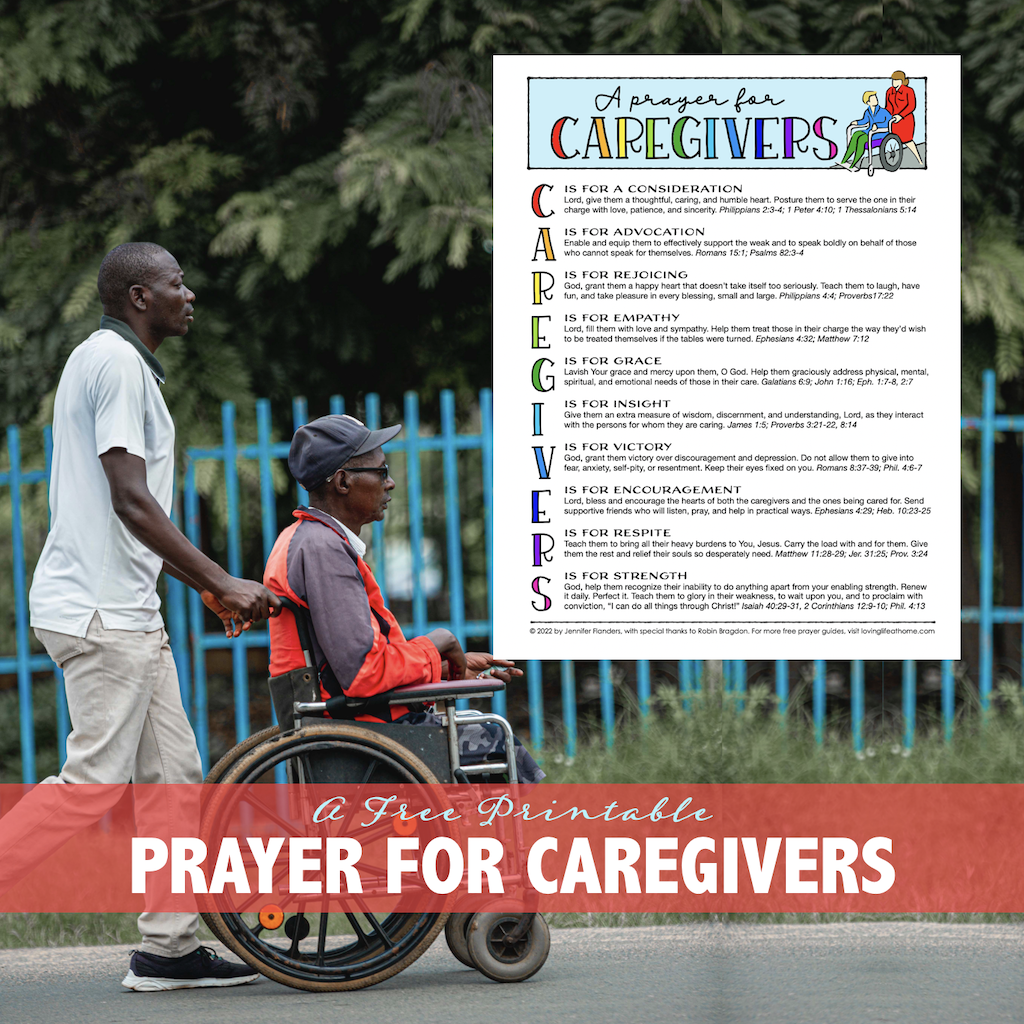Extending Grace to the Undeserving
Sometimes showing grace to others is easy. The person in need of grace is someone we like. Someone who is naturally sweet. Someone who’s normally very easy to get along with.
Sometimes, though, extending grace is a challenge. Some folks are difficult, demanding, and inconsiderate. Some take advantage of others. Some are disagreeable. Some cut us off in traffic. Some are just plain rude.
They don’t deserve grace, we may think to ourselves.
But, then again, neither do we.
Yet grace for the undeserving is exactly what God has given. In fact, He has lavished it upon us. (Ephesians 1:7-8)
It is not something we’ve earned. It’s not something we deserve. He gives it freely, because he loves us deeply.
In turn, God expects us to demonstrate that same grace in our dealings with others. To extend that same undeserved grace to the people around us.
That includes those cranky, cantankerous, “undeserving” types, too. Often, they’re the ones who need it the most. We need to demonstrate grace to the “undeserving” or unappreciative, not only for their benefit and blessing, but our own, as well.
But how do we go about it? How do we extend grace when doing so may be completely out of sync with our natural reaction in a given situation?
Extending Grace to the Undeserving
We do it by praying for God’s help and by following Christ’s example. (Philippians 2:1-15) Scripture spells this out for us:
G = Grant forgiveness freely
Harboring grudges and resentments doesn’t hurt the target of our bile and bitterness nearly as much as it hurts our own health and wellbeing. We must learn to let things go and move on, for our own sake as well as for the people around us. God has forgiven us an insurmountable debt. So must we freely forgive others. (Matthew 19:21-35)
R = Remain patient at all times
We shouldn’t allow the words or actions of others to inflame us. Instead, we must stay steady. Think clearly. Remain calm. The Bible teaches that patience is a mark of wisdom (Proverbs 19:11). We are told to “count it all joy” when we encounter trials, knowing that such difficulties mature us and build our patience and endurance. (James 1:2-3)
A = Answer evil with good
We must resist the urge to repay tit for tat. “Getting even” is not a godly mindset, it just escalates and perpetuates the conflict. Instead, we should “bless those that curse you and pray for those who despitefully use you.” (Luke 6:28-29) We should not return evil for evil (Romans 12:17), but should treat others the way we’d like for them to treat us. (Luke 6:30)
C = Consider others’ viewpoints
There may be contributing factors to their behavior of which you are unaware. Put yourself in their shoes, not to justify another’s wrong actions, but to help you better understand underlying causes so that they can be effectively addressed. Examine your own heart, attitudes, and actions in the matter. Have these contributed to the problem you are facing? If so, ask their forgiveness and do what you can to make amends. (Matthew 5:23-24)
E = Exemplify Christ’s love
“Let everything be done in love.” (1 Corinthians 16:14) Love is our standard. It is patient, kind, and longsuffering. (1 Corinthians 13) We should love, because God first loved us. (1 John 4:19). Love and grace are inseparable.
But extending grace to the undeserving does not mean we must sweep problems under the carpet and pretend they don’t exist. Wrongful behavior needs to be addressed, and it may sometimes fall on us to do it (especially for those of us who are mothers with young children still at home). Yet in the midst of addressing such difficulties, we must pray for wisdom, then speak the truth in love (Ephesians 4:15) with sincere humility.
This is the path grace marks out for us — even when dealing with the most difficult cases — and it is our best hope for resolving conflicts in a way that honors God by communicating His love and grace to those around us.








Hi Jennifer,
This is a story that comes to mind often and your post reminded me of it. I pray that the Lord make me as gracious as this Grace!
https://nogreaterjoy.org/articles/the-most-gracious-miss-grace/
Katie
Wow! She was gracious and humble! Not many would have responded to that sad situation in a way that so beautifully exemplified God’s love and forgiveness. Thanks for sharing.
Thank you for this great sharing! So many good reminders. A small notice for you: “Let everything be done in love.” is 1 Corinthians 16:14, not 16:4 😉
Thank you so much for alerting me to that typo, Egle. I always appreciate good proofreading! I’ve corrected it now. I hope you have a blessed day!
Thank you for this gentle reminder! It is so easy to extend grace to those we love, not so easy to extend it to those who don’t particularly love us! But I love how you stated that they are the ones who need it the most. Grace – what a beautiful word!
I really needed this and I’m happy to have taken out the time to read it thoroughly. I struggle many times with grace. I have loved ones that have the ability to do things and they either don’t want to hold a job or they find ways to manipulate. Please pray for my strength in God as I follow His path.